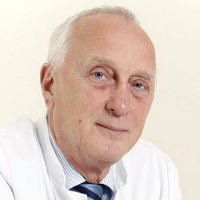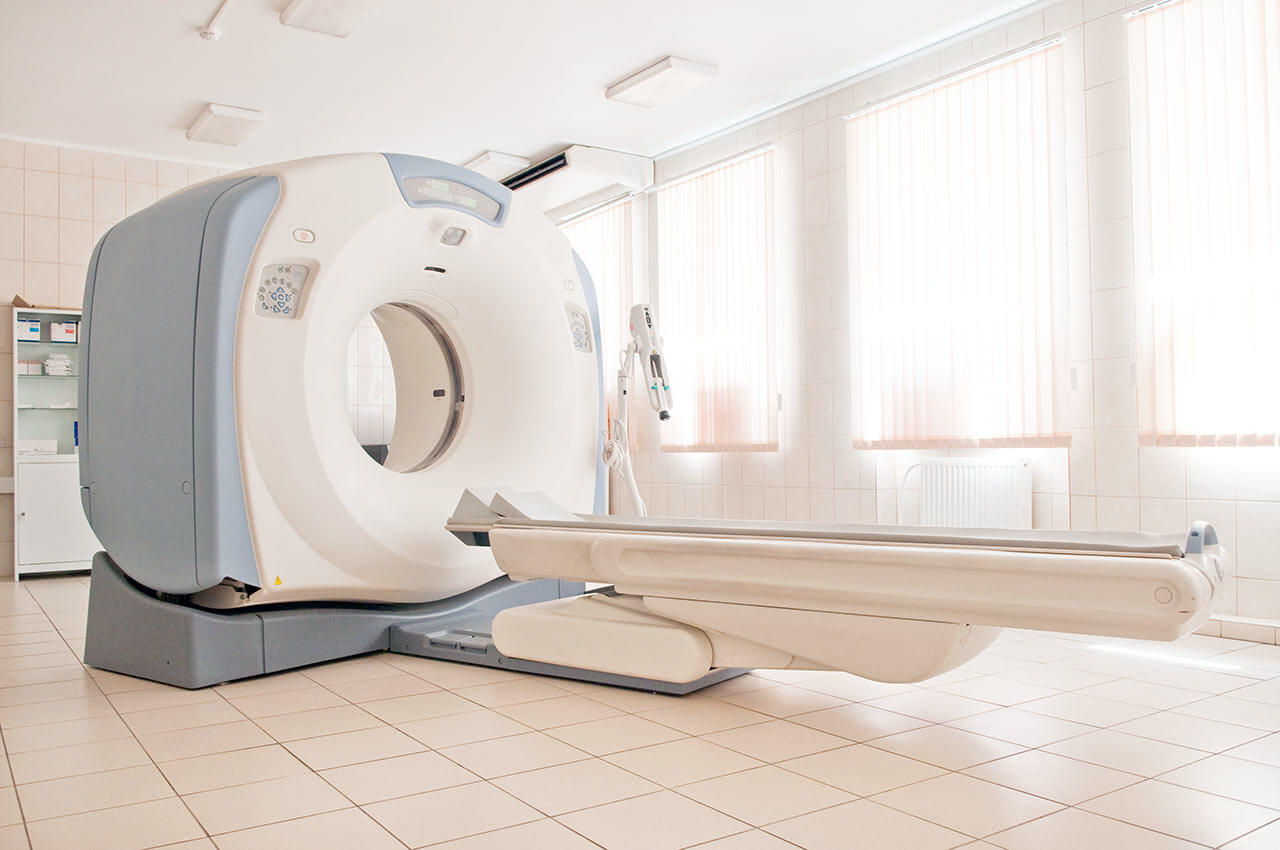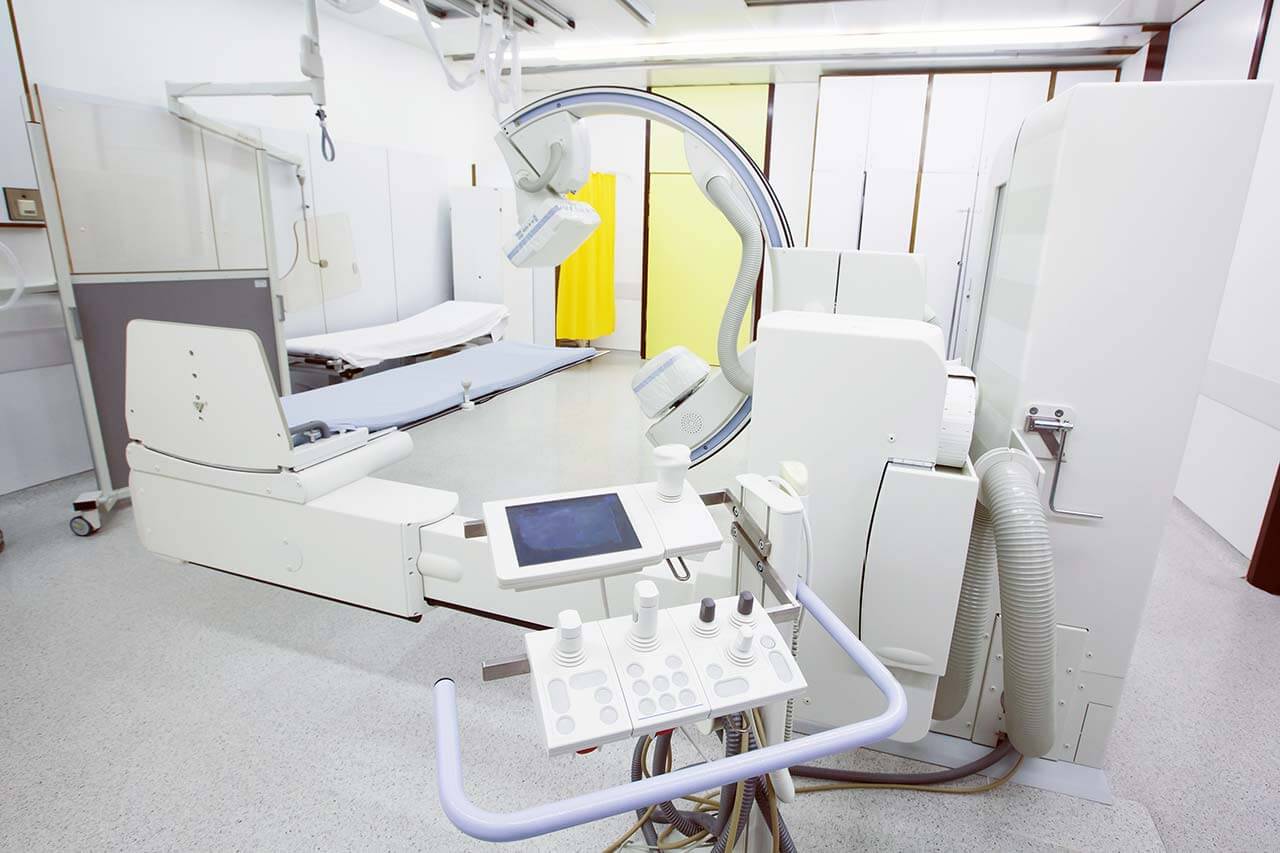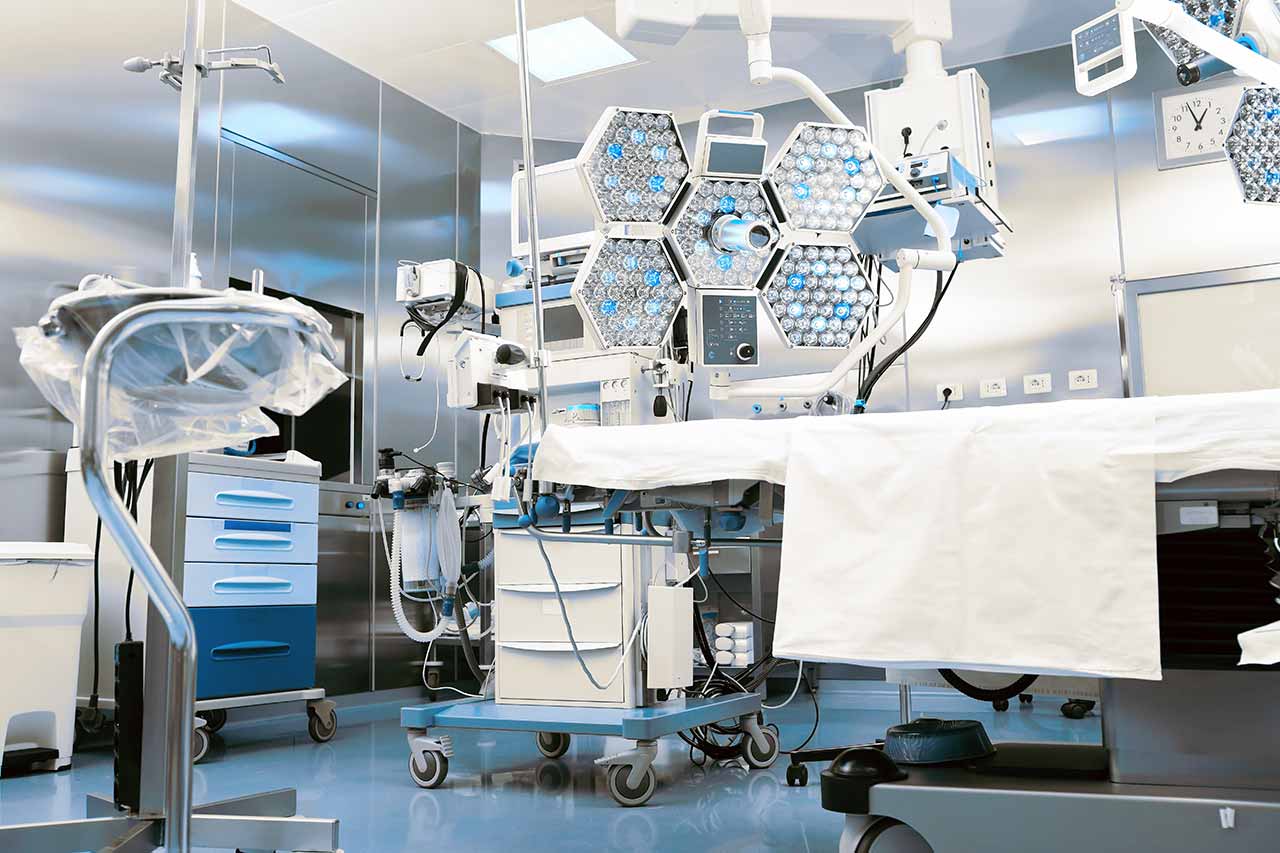
The program includes:
Step 1: arthroscopic removal of the cartilage
- Initial presentation in the clinic
- clinical history taking
- physical examination
- review of medical records
- laboratory tests:
- complete blood count
- general urine analysis
- biochemical analysis of blood
- indicators of inflammation
- indicators blood coagulation
- x-ray examination of the knee
- preoperative care
- arthroscopic removal of the cartilage for cultivation of chondrocytes
- symptomatic treatment
Type: Outpatient or Inpatient
Duration: 3 days
Step 2: Cultivation of chondrocytes
Duration: 6-8 Weeks (The patient is at home)
Step 3: Autologous Chondrocyte Implantation
- presentation in the clinic
- physical examination
- laboratory tests:
- complete blood count
- general urine analysis
- biochemical analysis of blood
- indicators of inflammation
- indicators blood coagulation
- control x-ray examination of the knee
- preoperative care
- arthroscopic chondrocyte Implantation
- symptomatic treatment
- control examinations
- the cost of essential medicines and materials
- physiotherapy
- nursing services
- full hospital accommodation
- explanation of future recommendations
Type: Inpatient
Duration: up to 5 days
Required documents
- Medical records
- X-ray examination, MRI/CT scan (if available)
Service
You may also book:
 BookingHealth Price from:
BookingHealth Price from:
About the department
The Department of Adult and Pediatric Orthopedics, Traumatology, Sports Traumatology at the University Hospital Freiburg offers the full range of services in these areas at the highest level of university medicine. As a leading German medical institution in traumatology, the department provides round-the-clock emergency care for patients with accident and other injuries of any severity. In addition, the department's scope of activities includes treatment of sports injuries, diseases, malformations and injuries of the entire musculoskeletal system in patients of all age groups. The department is headed by Prof. Dr. med. Norbert Südkamp.
The department performs about 22,000 outpatient emergency interventions, 25,000 planned surgical interventions, more than 5,000 inpatient operations annually. Surgical care is provided by a qualified experienced medical team consisting of 45 doctors and 79 nursing staff.
The department offers the following therapeutic services:
- Traumatology
- Polytraumas
- Severe spinal injuries
- Pelvic injuries
- Monotraumas
- Bone fractures
- Other types of injuries
- Sports traumatology
- Comprehensive medical examination and counseling
- Doppler ultrasound (ultrasound examination of tendons, muscles and joints)
- Chiropractic
- Manual therapy
- Acupuncture
- Shockwave therapy
- Ultrasound-guided injections
- Recommendations for the use of aids, bandages, orthopedic shoes, etc.
- Other services
- Pediatric orthopedics
- Foot deformities (for example, club foot, flat feet, heel foot, hollow foot)
- Hip joint diseases (for example, Perthes disease, hip joint dysplasia, hip joint dislocation, inflammatory diseases of the hip joint, osteochondritis dissecans)
- Neuro-orthopedic diseases (for example, infantile cerebral palsy, spina bifida, muscular dystrophy (in close collaboration with the Departments of Pediatrics and Neuropediatrics))
- Treatment of all pediatric musculoskeletal tumors (in collaboration with the Department of Pediatric Oncology)
- Conservative and surgical treatment of scoliosis in children
- Defects and malformations of the musculoskeletal system in children (for example, axis misalignments, leg length discrepancy)
- Other diseases and developmental disorders
- Pediatric traumatology
- General pediatric injuries
- Severe injuries
- Polytraumas
- Joint injuries (knee and shoulder joints)
- Cruciate ligament injuries
- Other types of trauma
- Knee surgery and operations for knee cartilage injuries
- Hip and knee arthroplasty (including minimally invasive and other modern techniques)
- Shoulder surgery
- Shoulder instability
- Pathologies of the long biceps tendon
- Rotator cuff tear
- Shoulder impingement syndrome
- Forearm calcification
- Shoulder osteoarthritis
- Fractures of the humerus, scapula and clavicle
- Recent and chronic dislocations of the shoulder and sternoclavicular joints
- Tendon rupture
- Congenital and acquired defects of the shoulder
- Other diseases of the shoulder
- Foot and ankle surgery
- Congenital and acquired foot deformities
- Foot fractures and dislocations
- Flat foot
- Hollow foot
- Ankle impingement syndrome
- Cartilage damage in the upper ankle joint
- Injuries of ligaments and tendons, as well as ankle ligament instability
- Sports-related foot injuries
- Ankle osteoarthritis
- Acute and chronic Achilles tendon injuries
- Diabetic foot syndrome
- Spinal surgery (conservative and surgical treatment)
- Special medication therapy
- Pain therapy (for example, infiltration, epidural injections, facet joint blockade)
- Manual therapy
- Microscopic and open surgery (decompressions) for spinal stenosis
- Microsurgery for herniated intervertebral discs of the cervical, thoracic and lumbar spine
- Spinal fusion surgery in spinal instability, spondylolisthesis and post-nucleotomy syndrome
- Intervertebral disc prosthesis (in degenerative diseases)
- Corrective interventions, for example, in scoliosis (corrective spinal fusion)
- Vertebroplasty and kyphoplasty in vertebral osteoporotic fractures (stabilization of the affected vertebral bodies with special cement)
- Surgical treatment of spinal tumors
- Dorsal and ventral surgical techniques for the treatment of spinal trauma
- Other treatment methods
- Diagnostics and treatment of osteoporosis
- Diagnostics and treatment of benign and malignant bone and connective tissue tumors, as well as bone metastases
- Other medical services
Curriculum vitae
- 1969 - 1976 Study of Electrical Engineering at the Leibniz University Hannover.
- 1976 Degree in Electrical Engineering.
- 1975 - 1981 Study of Medicine at the Hannover Medical School.
- 1981 State Examination.
- 1982 Title of Candidate of Medical Science.
- 1990 Doctoral dissertation defense.
- 1976 - 1980 Research Fellowship at the Institute of Engineering and Telecommunications, Department of Telecommunications, University of Hannover.
- 1981 - 1988 Internship, Municipal Clinic Heidehaus, Hannover, Department of Traumatology, Hannover Medical School, Department of General Surgery, Municipal Clinic Salzdalumer Strasse, Braunschweig.
- 1988 Visiting Doctor at the University of Mississippi, Jackson, MS, USA. Internship in the field of Arthroscopic Shoulder Surgery.
- 1988 Senior Physician in the Department of Traumatology, Hannover Medical School.
- 1993 Invitation to the position of the University Professor.
- 1991 - 2001 Deputy Director of the Department of Orthopedics and Traumatology; Professor (C3) of Traumatology at the Charité University Hospital Campus Virchow Clinic, Humboldt University of Berlin.
- 2000 - 2001 Act. Medical Director of the Department of Traumatology at the University Hospital Freiburg.
- 2001 - 2005 Medical Director of the Department of Traumatology, Professor of Traumatology, Sports Traumatology at the University Hospital Freiburg.
- Since 2005 Head of the Department of Adult and Pediatric Orthopedics, Traumatology; Professor of Traumatology at the University Hospital Freiburg.
Memberships in Professional Societies
- German Society of Traumatology, Presidium Member.
- German Society of Surgery.
- German-speaking Professional Association for Arthroscopy (AGA).
- German Society of Sports Medicine.
- European Society for Surgery of the Shoulder and the Elbow (SECEC).
- German Society for Surgery of the Shoulder and the Elbow.
- Corresponding Member of the North American Orthopedic Trauma Association.
- Arthroscopy Association of North America (AANA).
- Chairman of the AO/ASIF Expert Group.
- American Association of Orthopedic Surgeons (AAOS).
- Chairman of the Scientific Committee of the AO/ASIF Expert Group.
Photo of the doctor: (с) Universitätsklinikum Freiburg
About hospital
The University Hospital Freiburg is famous for its rich history and is one of the oldest and most prestigious medical facilities in Germany (one of the three best medical institutions in the country). The hospital was based on the Faculty of Medicine of the Albert Ludwig University of Freiburg, which celebrated its 550th anniversary in 2007. It should be noted that the hospital is proud of its world-renowned specialists, many of whom during their work here have become Nobel laureates.
The medical facility represents all fields of modern medicine. It consists of 42 departments, 11 institutes and 10 interdisciplinary centers. The highly qualified doctors of the hospital deal with the treatment and rehabilitation of patients with both common and rare diseases. All departments and institutes of the hospital take an active part in fundamental researches of international scale, due to which patients have access to the very latest achievements of medicine, advanced diagnostic methods, state-of-the-art medical equipment and proven effective methods of therapy.
The hospital has a variety of medical achievements, for example, the world's first TIPS procedure, the first implantation of the Jarvik-2000 artificial heart in Europe, the first robotic-assisted surgery on the brain, and the first combined cardiopulmonary transplantation in the land of Baden-Württemberg. In 2004, the University Hospital Freiburg became the first German hospital, which performed kidney transplantation in the incompatibility of blood groups. At the moment, the hospital belongs to medical centers with the greatest experience in performing such an operation.
An interdisciplinary approach to treatment, highly qualified staff, as well as individual patient care and a pleasant environment are key to the hospital’s success.
Photo: (c) depositphotos
Accommodation in hospital
Patients rooms
The patients of the hospital are provided with comfortable rooms with a pleasant design, which create a conducive atmosphere for recovery. The standard furnishing of the patient room includes a telephone, a free radio and TV, a device for calling medical staff, lockers and a safe, an adjustable bed, a chair and a table. The pediatric departments are designed with play areas. The patient may be accommodated in a single or double enhanced-comfort room (for example, with an ensuite bathroom) at an additional cost.
Meals and Menus
The patients are offered good three meals a day with a large selection of dishes. The patients inform about their wishes to the menu in advance, and this information is transmitted to the kitchen. Throughout the day, patients may drink mineral water and tea, which can be found in the department on special tables. The bedridden patients receive drinks from the nursing staff. Other drinks may be purchased at the hospital’s cafeterias and bistro, where patients can come along with visitors.
If you do not eat some products due to intolerance or other personal reasons, please notify the nursing staff in advance, so that all your wishes to be taken into account when preparing the menu.
Further details
Standard rooms include:
Television
All patient rooms have a free radio and TV. The patients can also watch the hospital’s own 24-hour channel with a varied program and interesting information.
Accompanying person
At the availability of free beds, the accompanying person may be accommodated in the same room with the patient, at an additional cost. In addition, the hospital offers special accommodation conditions for patients requiring long-term hospitalization. Parents have at their disposal special apartments in the children's hospital.





